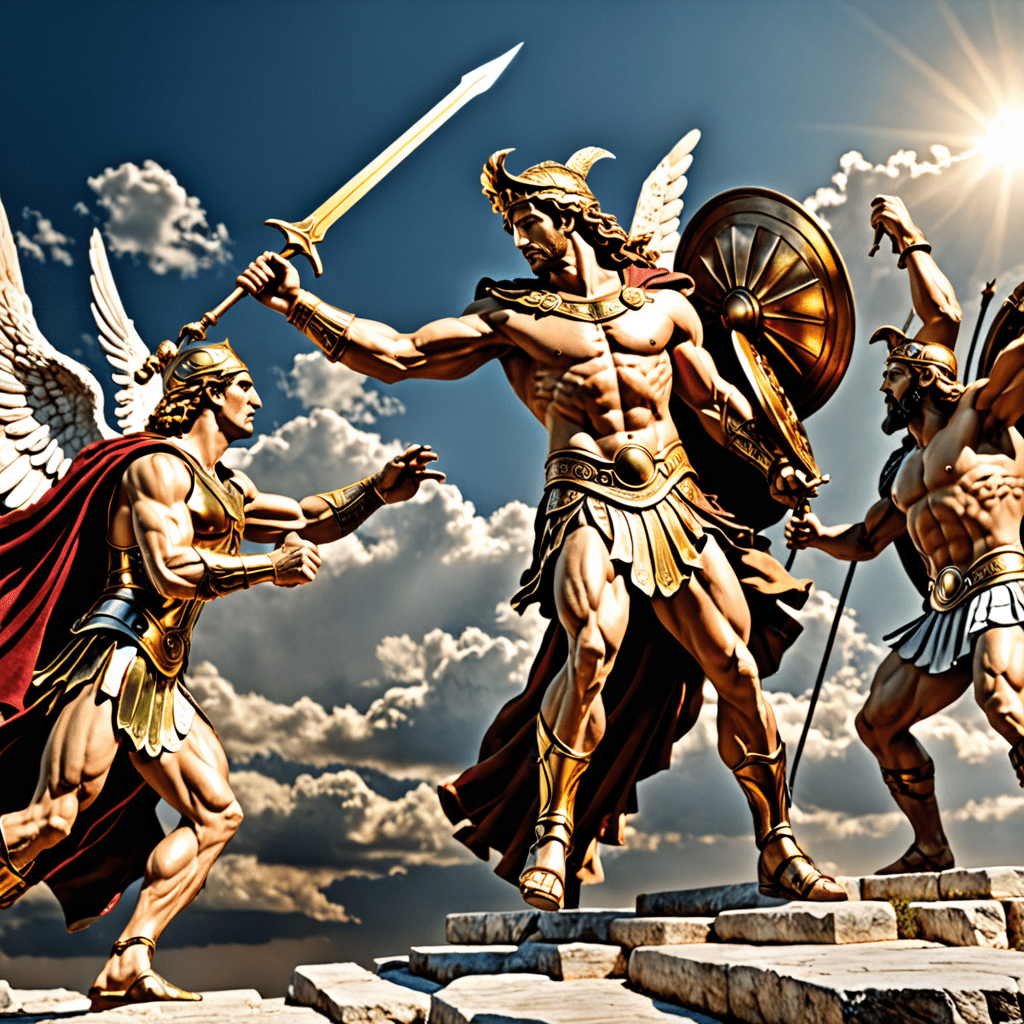The Myth of the Great Conqueror: Morality in War Tales
I. Introduction
The concept of the Great Conqueror myth refers to the glorified narrative surrounding historical figures who achieved significant military success and territorial expansion. This archetype often portrays these conquerors as heroic and admirable, celebrating their accomplishments while glossing over the darker aspects of their campaigns.
Examining the morality in war narratives is crucial as it reveals the complexities of conquest, the suffering endured by those affected, and the ethical dilemmas faced by leaders and soldiers alike. By understanding these stories, we can better appreciate the consequences of glorifying warfare and its impact on society.
This article will explore the historical context of the Great Conqueror archetype, the romanticization of war in literature and art, the reality of war’s consequences, the role of historians and storytellers, and the need for contemporary reflection on morality in war. Ultimately, it aims to advocate for a more balanced perspective on these narratives.
II. Historical Context of the Great Conqueror Archetype
The Great Conqueror myth has deep roots in ancient civilizations, where leaders were often venerated for their military prowess. These figures, such as Alexander the Great and Genghis Khan, became symbols of strength and ambition.
- Alexander the Great: Known for his unparalleled military conquests, he established one of the largest empires in history. His legacy is often romanticized as a hero who spread Greek culture.
- Genghis Khan: Founder of the Mongol Empire, his campaigns resulted in vast territorial expansion. While revered in Mongolia, he is viewed with ambivalence due to the destruction he caused.
Over time, this myth has evolved through various cultures and eras, adapting to the values and beliefs of different societies. The portrayal of conquerors has shifted from ruthless warriors to complex figures with both commendable and condemnable traits.
III. The Romanticization of War and Conquest
Literature and art have played significant roles in depicting conquerors as heroic figures. These works often emphasize bravery, strategic genius, and the glory of victory while neglecting the suffering and destruction left in the wake of conquest.
Propaganda has also been instrumental in shaping public perception of conquerors. Nations often celebrate military leaders to instill pride and unity among their citizens. For instance:
- In the United States, figures like George Washington and General Patton are often glorified as national heroes.
- In Britain, military campaigns are frequently depicted in a positive light, framing colonial expansion as a civilizing mission.
Famous literary works that exemplify this romanticism include Shakespeare’s Henry V, where the king is portrayed as a valiant leader, and Homer’s The Iliad, which, while acknowledging the brutality of war, highlights the heroism of its warriors.
IV. The Reality of War: Consequences and Morality
Despite the glorification of conquerors, the human cost of war is often staggering. Civilian casualties, displacement, and long-term trauma are common outcomes of military campaigns. The ethical dilemmas faced by conquerors and their armies reveal a stark contrast to the heroic narratives.
- Civilian Casualties: Throughout history, wars have resulted in millions of innocent lives lost, raising questions about the morality of conquest.
- Ethical Dilemmas: Conquerors often faced tough choices between military success and the welfare of the people affected by their actions.
Contrasting perspectives on morality in war highlight the differing views of conquerors and the conquered. While conquerors may justify their actions as a means to an end, the conquered often recount tales of suffering and loss, challenging the glorified narratives of their oppressors.
V. The Role of Historians and Storytellers
Historians play a crucial role in interpreting the actions of conquerors. Their accounts can either perpetuate the myth of the Great Conqueror or offer a more nuanced understanding of historical events.
The impact of storytelling on collective memory and national identity cannot be overstated. Narratives surrounding war heroes shape how societies view their past and inform their present identity.
Examples of reinterpretation of historical figures in modern discourse include:
- Reassessing figures like Christopher Columbus, whose legacy is now viewed with critical scrutiny due to the impact of colonization on indigenous populations.
- Examining the actions of generals in the context of their time, recognizing both their military achievements and the moral implications of their decisions.
VI. The Impact of Cultural Narratives on Society
Cultural narratives surrounding war tales significantly influence national identity and pride. These stories often serve to unify a nation, creating a shared sense of history and purpose.
The relationship between mythology and contemporary military actions is evident in the way countries frame their military engagements. Glorifying war leaders can have profound consequences, including:
- Encouraging a culture of militarism and glorifying violence as a means of resolving conflicts.
- Inspiring future generations to view warfare as honorable, potentially leading to cycles of conflict.
Moreover, the way war leaders are portrayed in educational systems can shape young minds, influencing their understanding of morality and ethics in warfare.
VII. Dissenting Voices: Critiques of the Great Conqueror Myth
Amidst the glorification of conquerors, voices of the oppressed often emerge, providing alternative narratives that challenge the dominant discourse. These narratives highlight the suffering and resistance of those affected by conquest.
Modern critiques of conquest and imperialism have gained traction, particularly in the context of postcolonial studies. Scholars and activists argue for a re-evaluation of historical figures and the narratives surrounding them.
The rise of postcolonial perspectives on historical figures has opened up discussions about the ethics of remembering conquerors as heroes. This has led to a more critical examination of the legacies of figures like Cecil Rhodes and their impact on contemporary society.
VIII. Contemporary Reflections on Morality in War
The relevance of the Great Conqueror myth in today’s conflicts is significant. As nations engage in military interventions, the question of morality remains central to discussions on ethics and imperialism.
In modern warfare, the ethics of intervention must be scrutinized. The role of technology and media shapes perceptions of war, often sanitizing the brutal realities faced by combatants and civilians alike.
- Drone warfare has raised ethical questions about accountability and the dehumanization of combat.
- Media portrayals can influence public opinion, often glorifying military actions while downplaying civilian suffering.
IX. Reimagining the Narrative: Towards a More Balanced Perspective
To move towards a more balanced perspective, it is essential to embrace inclusive historical narratives. Understanding history from multiple viewpoints can lead to a more nuanced appreciation of the complexities involved in war and conquest.
Strategies for teaching morality in war through diverse perspectives include:
- Incorporating voices of the oppressed into curricula, allowing students to engage with various narratives.
- Encouraging critical thinking about the glorification of historical figures and the implications of their actions.
The role of art and literature in challenging traditional narratives is also vital. Creative expressions can offer alternative viewpoints, encouraging reflection on the morality of war and the true cost of conquest.




